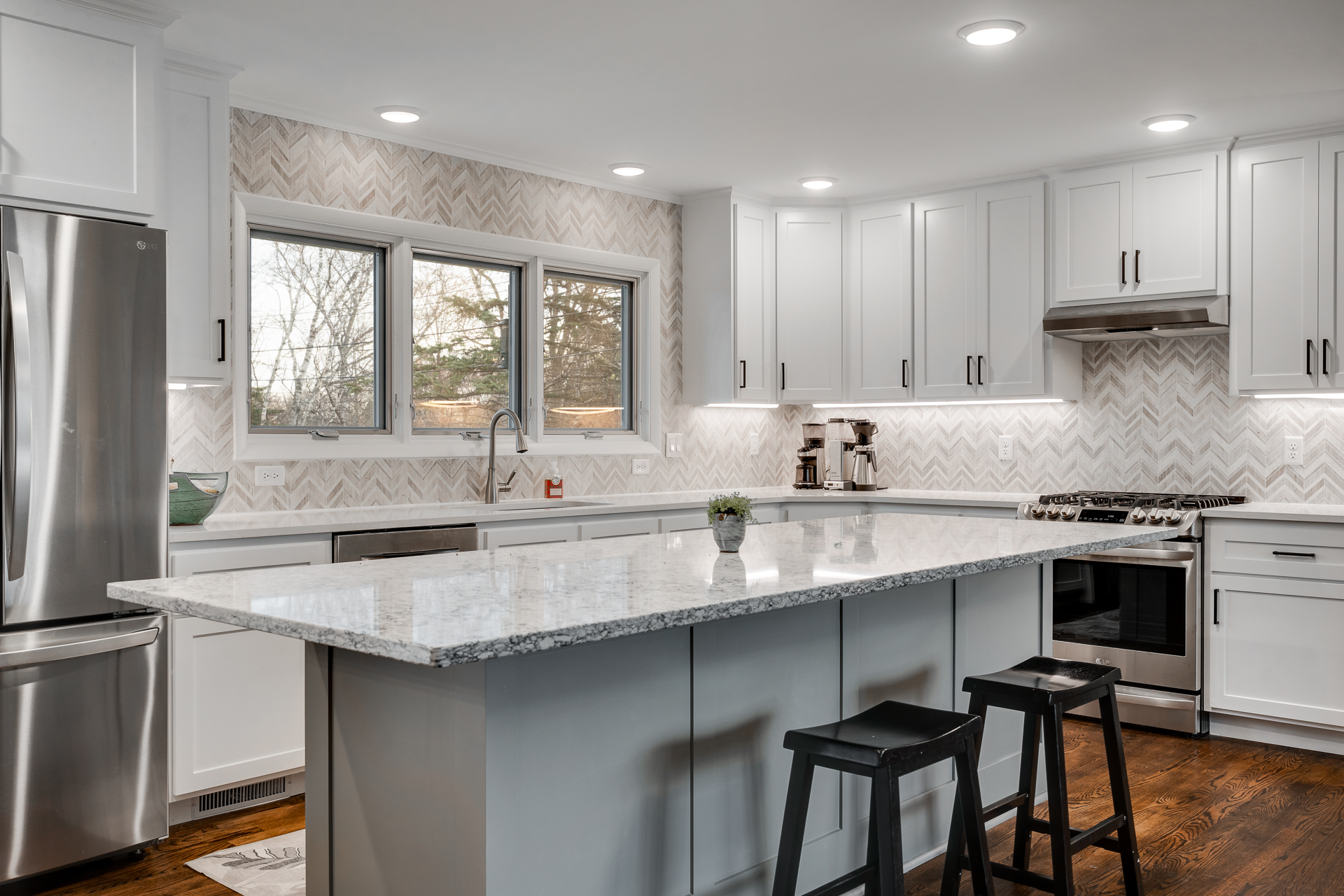Month: February 2024
Working with a Minnesota General Contractor: Tips for Success
Looking for tips for success to working with a home renovation contractor in Minnesota? You’re in the right place!
So you’re looking to make some changes to your home and you thought “maybe I can do this myself” before looking into the process. Or maybe your immediate thought was that bringing in a professional General Contractor was the only option. However you got here, now you’re ready to start diving into the world of working with general contracts, and you’re not totally sure where to begin.
Take these eight tips for success to working with a general contractor in Minnesota.
1. Decide on Your Ideal (And Realistic) Timeline
Having an idea of when you want your project completed can ultimately have an effect on the contractors you are willing and able to work with. Knowing you need a bathroom finished by the time you host twenty people for Thanksgiving means you might not choose a company who is booked out until after the holiday. If you have deadlines or timelines in mind, it can help a great deal when initially chatting with contractors to decide if they will be a great fit for your project.
The time of year can have an effect on how easily your project may fit into schedules too. Right after tax season, the end of summer, and right before the holidays are often busy times for contractors, so if you are looking to get in quick, taking those seasons into consideration can be helpful. Cancelations and changes in schedule happen though, so don’t count a contractor out just because you think they might be busy during the summer months.
This is great information to gather when you follow the next tip for success to working with home renovation contractors in Minnesota.
2. Find Some Referrals
The best way to vet out some great companies is to ask your friends, neighbors, or second cousin’s third cousin twice removed (as long as you trust them, that is) who they worked with, and if they recommend them. The second part of that question is huge. Ask them for the nitty gritty. If they were timely and easy to communicate with, but the work wasn’t the best, decide if you want them on your list or not. If they did amazing work, but the project went over on timeframe, decide if the quality of work is more important to timeliness. Ideally you will find a company who has raving reviews from past clients and start the process with them. (Check out some of ours below.)
We know you may want to get started today, but take your time and utilize the next tip before settling on any one company.

3. Set Up A Time To Talk In Person
This next tip for working with home renovation contractors in Minnesota is a big one for success.
It’s incredibly important that you meet with potential contractors in person, in the space you want them to work on. In fact, this is often a requirement that a contractor will have! (And it should be, in our opinion).
This way you get to meet and talk to the person you could very well be working with for the next couple of months. An in person meeting in the space you want to renovate will also give the contractor a chance to see your vision, identify what works need to be done to get you to that dream, and call out any possible problems they can see. These guys and gals are professionals, and meeting with them will give you both a sense of the amazing relationship you could foster through this project.
During this meeting there are a few things you should make sure you chat about, take a look at the next point to get idea.
4. Ask if They’re Licensed
Any general contractor you work with needs to be licensed in the state the work will be performed in. In Minnesota this means that “any individual or company that contracts directly with an owner of residential real estate (one to four units) to provide work in more than one special skill must have a residential building contractor or residential remodeler license.” Minnesota Department of Labor and Industry.
In Minnesota, it’s important for your success with a home remodeling contractor to ensure they’re licensed. And if you ask about it, they should be willing and eager to tell you “yes!”
Licensed contractors will ALWAYS have a contract put in place. Read about your contract in the next tip.
5. Read Your Scope & Contract
Contracts are put in place by businesses of all sorts, and they’re usually there to protect both you, the customer, and the person writing the contract. Read through your contract thoroughly to ensure you understand what type of work will be happening, what happens if the work doesn’t go as planned, and, most importantly, exactly what work and materials are included.
A few things to look for in your contract:
- Scope of Work – what work they are providing
- Payment Schedule – when is your first payment due, and when is the rest due
- Contract Price – what you agree to pay, plus cancellation information
- Certificate of Completion – what happens when the project is over
- Warranty – what happens if the project is over and problems arise
Interested in learning more about your contract? Click over to this post to get a more in depth run down.
Even very experienced, professional contractors will run into problems that may not be covered in your contract. Dive into the next tip to learn about how they should be handled, and how to prepare for them.
6. Prepare for Problems
Problems are . . . well. Just that; problems. And with professional, licensed home remodeling contracts they are almost always unforeseen and unavoidable.
Your cabinets are backordered, a massive snow and ice storm hits Minnesota and no one can get to the job sight. (Safety first, right?) Maybe something unexpected is hidden in your walls. Or maybe even the tile you’ve had your eye on is suddenly out of stock, indefinitely.
Staying calm and professional during problem times or delays is essential for both the customer and the contractor. Your contact with the contractor you’ve partnered with deals with things like this all the time, and are ready with solutions to make the best of the situation.
Finding different materials, researching any changes that come up, and just plain ole waiting are all solutions to the problems I’ve listed above.
When problems come up a change order might be warranted, and this sometimes comes with prices change. Head to the next tip to learn what you need to know about changes orders.
7. Get Change Orders in Writing
A change order is a change to your contracted project. This usually comes from you wanting a different material than originally planned for, unforeseen problems, or various other things that change the project drastically. Most commonly we see change order come up with projects that involve electrical, plumbing, and mechanical aspects. This is because there is often no way to know exactly what’s going on behind the walls until we get in there. A reputable, licensed contractor will always explain to you what is happening and why it needs to happen. They will discuss the change with you and then provide you with a change order to sign. This will include what is changing, and how that effects the price and timeline if applicable.
At this point your project is either going smooth as butter, or has had a few hiccups. Throughout the process you should be checking on progress, head to the next tip to learn more.
8. Check on the Project Periodically
Whether your project is large or small, intense or easy going, you should check on the progress throughout your project. It’s always a good idea to look around and communicate anything you see with your person of contact, anything you want to chat about. Your project manager should be happy to answer any questions you have, and reassure you or correct and worries that you have. Just remember that they are people too and to respect working hours, holidays, and weekends.
As we wrap this post up I want to remind you of one more thing. Your home remodeling contractor is first and foremost, your partner. They want to see your vision come to life and leave you with a functional space you love. Talk with your contractor, ask questions, and answer any they have as well.
Follow along with Satin Touch’s Homes Reinvented blog to learn more about working with contractors, DIY tips, decorating ideas, and so much more.
What To Look For In Your General Contractor Agreement
Looking at your general contractor agreement or contract might feel like reading something in a different language. This post is here to help you make a little more sense of what you might see in one.
*Quick disclaimer that none of this is legal advise and I am not a lawyer.
You should always read over anything you are signing carefully, and ask questions if you are uncertain about any details. Keep reading below to see some of the key points to review.
Who?
The Parties
The top section of a contract will generally include a description of the people entering into the agreement. Between you and a general contractor, this will include you and the business. There will also be legal placeholder names given to certain aspects, like:
Satin Touch, Inc. “Contractor”
The address of work. “The Property”
What?
The Work
Look carefully at what work is being signed into this contract. A reputable contractor will have included everything you have talked about with your person of contact. This information will likely be found in the form of a “Scope”, or “Scope of Work”. This list will have all of the details of the work to be completed. It is an important list to look over. You should look to make sure this matches what you have been talking with your contact about. Make sure that the details you find important are included and correct. They should also be written in such a way that you know what is going to happen. So I’ll say again, ask questions!
When?
The Payment Schedule
Many general contractors will work on a payment schedule with you. This means that payments will be due at milestones of the project. There will often include a deposit due when you sign the contract, as well as other milestones like project start, after certain installations, and a final payment due when you sign the certificate of completion. Look for this information in your contractor agreement and stick with it.
Where?
The Project Location
Somewhere in the contractor agreement, it should be listed the exact address of the property where the project will be completed. Your current home, new home, or wherever else you might be contracting work for. It’s important that this is correct for legal reasons, like if you ever have to enforce the contract. But this information will also be used for any material deliveries or drop offs. It will also be given to the contractors and general contractor’s employees.
Why and How?
These are questions you should either be able to answer yourself, or know from communicating with your contractor. If you have any questions, and I’ll say it once more: ANY questions, please ask your contractor. Your general contractor is a professional, and they should have no problems answering your questions.
Please remember throughout the process to respect business hours and methods of communication requested by your general contractor.





